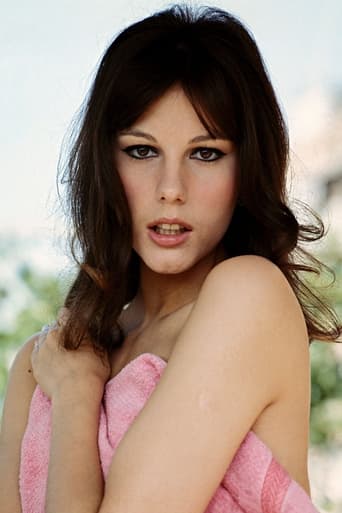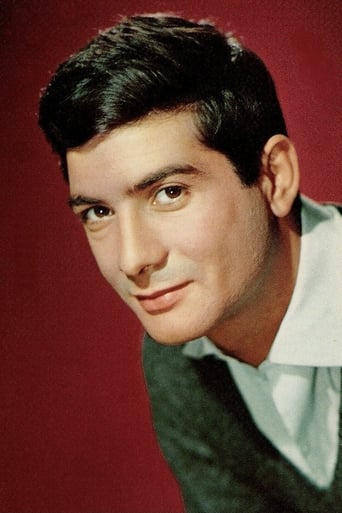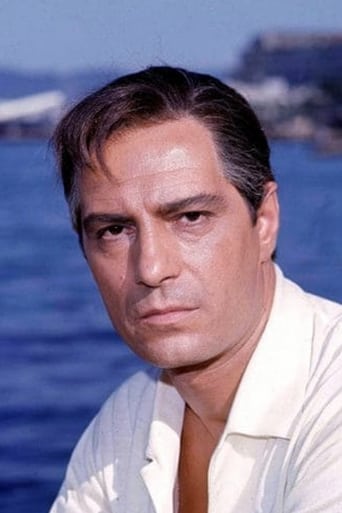Linkshoch
Wonderful Movie
Matialth
Good concept, poorly executed.
CrawlerChunky
In truth, there is barely enough story here to make a film.
Zandra
The movie turns out to be a little better than the average. Starting from a romantic formula often seen in the cinema, it ends in the most predictable (and somewhat bland) way.
manicmotionman
There is a scene from I Knew Her Well between Adriana (Stefania Sandrelli) and The Writer (Joachim Fuchsberger) that says a lot about the film:The Writer: "Trouble is, she likes everything. She's always happy. She desires nothing, envies no one, is curious about nothing. You can't surprise her. She doesn't notice the humiliations, though they happen to her every day. It all rolls off her back like some waterproof material. Zero ambition. No moral code. Not even a whore's love of money. Yesterday and tomorrow don't exist for her. Even living for today would mean too much planning, so she lives for the moment. Sunbathing, listening to records, and dancing are her sole activities. The rest of the time she's mercurial and capricious, always needing brief new encounters with anyone at all... just never with herself." Adriana: "I'm Milena, right? Is that what I'm like? Some sort of dimwit?"The Writer: "On the contrary. You may be the wisest of all."I couldn't encapsulate the brilliance of this incredibly well directed character essay any better.
zetes
Kind of a smaller version of La Dolce Vita with a female lead, this slice of 1960s Roman life is great in its own right. Stefania Sandrelli (probably best remembered as the woman who shared a sexy dance with Dominque Sanda in The Conformist) plays an aspiring actress and model who spends her nights partying her ass off and her mornings alone. The plot is pretty simple and pretty predictable, but director Pietrangeli shoots the film in a very experiential style - it feels like you're partying alongside Sandrelli, and it's just a really wonderful experience. Sandrelli herself is outstanding. It's a character that could come off as a cliché, but she plays her so knowingly and passionately. It's very, very easy to fall in love. The film is stuffed full of wonderful '60s pop songs (the only ones I recognized were by Millie Small, a Jamaican ska artist best known for her hit "My Boy Lollipop"), tremendous clothes and hairdos, and that crisp 1960s black and white. A must-see for anyone who loves the Italian films of this era.
Barbouzes
A great capsule of life in Italy in the early 60s. There are shades of la Dolce Vita since every scene takes place in summer and features incredible clothing, but our point of view here is radically different: it is that of a vulnerable young woman instead of a successful jaded male intellectual like in the Fellini movie. The vita is not so dolce for the girl played by the innocent-looking Stefania Sandrelli (who was apparently only 19 when she starred in that film, but what maturity she displays as an actress already.) A peasant girl from the sticks, we meet her right away in Rome where she aspires to glamour, stardom, fame etc. But because she does not know anyone, and is both naive and not very bright to boot, she takes many wrong turns and indulges all the wrong people. This film is very entertaining, because we are in Rome in 1964, it feels and looks like a hot summer all along, and the dresses worn by Sandrelli are unbelievably glamorous. But it is a ferocious social satire, and it is tender neither to our silly heroine nor to the sharks who exploit her and many others. The black&white photography is gorgeous on the eyes. Nino Manfredi and Ugo Tognazzi do each a memorable turn among the victim/exploiters that populates this Roman shark tank. Sandrelli is so good (and so beautiful) that she manages to make her character attaching in spite of her flaws.
liehtzu
Another of the many Italian movies about alienation in the post-war years, very well made, beautifully shot, often interesting - but not up there with L'AVVENTURA or LA DOLCE VITA. The problem is the main character, one of the horde of young, nouveau-American European youth of the 1960s, ignorant of the war or much else besides, who only enjoys dancing to moronic music, polishing her nails, and reading comic books. Of course, she wants to be an actress. She goes through as many hairstyles as boyfriends in the course of the film, and though among them there are some recognizable faces (Franco Nero is the shy young auto mechanic here; the following year he would be cold-blooded killer DJANGO), the hairstyles tend to be more memorable than the men.The problem with making a movie about a character as vapid as this young woman is that her story isn't compelling. Even though we find out later that she's really just a poor girl from the country from a hard-luck farm family, even though we cringe at the number of times she's exploited through the course of the film - there is one particularly cruel scene in which a young man, after sleeping with her, has her telephone the girl he really likes, just in case her mother answers - the life and death of a bubblegum-popping wannabe actress is not the stuff of great tragedy. She takes a leap just when self-awareness finally dawns: no one cares for her (except Nero's character, who she doesn't even notice), she's the butt of jokes, she really is just a beautiful idiot with no future once the looks fade. Of course, the real theme of the movie might be that thinking too much is a bad thing: in one telling sequence a jaded writer says as much to her, that her brainless, live-for-the-moment existence might be some kind of unconscious wisdom. But the life of the girl, who I suspect is a kind of symbol of the director's horror of modern Italy, grows a little tiresome before the end of the film.






